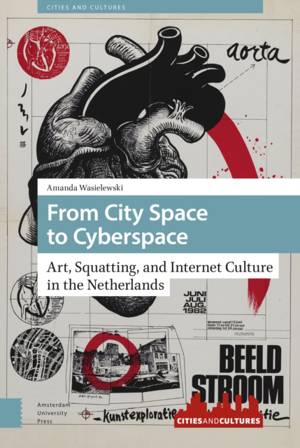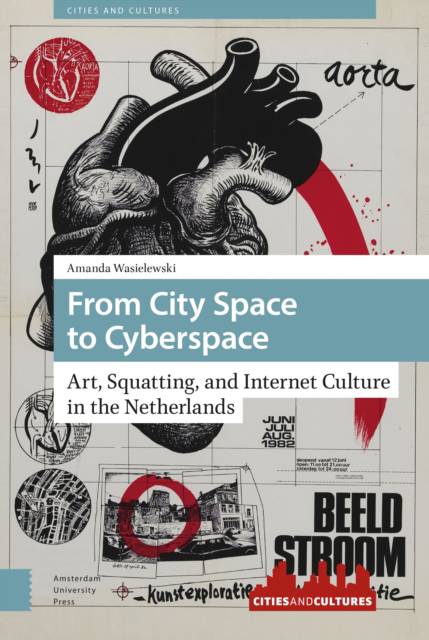
- Afhalen na 1 uur in een winkel met voorraad
- Gratis thuislevering in België vanaf € 30
- Ruim aanbod met 7 miljoen producten
- Afhalen na 1 uur in een winkel met voorraad
- Gratis thuislevering in België vanaf € 30
- Ruim aanbod met 7 miljoen producten
Zoeken
From City Space to Cyberspace
Art, Squatting, and Internet Culture in the Netherlands
Amanda Wasielewski
€ 162,45
+ 324 punten
Omschrijving
The narrative of the birth of internet culture often focuses on the achievements of American entrepreneurs in Silicon Valley, but there is an alternative history of internet pioneers in Europe who developed their own model of network culture in the early 1990s. Drawing from their experiences in the leftist and anarchist movements of the '80s, they built DIY networks that give us a glimpse into what internet culture could have been if it were in the hands of squatters, hackers, punks, artists, and activists. In the Dutch scene, the early internet was intimately tied to the aesthetics and politics of squatting. Untethered from profit motives, these artists and activists aimed to create a decentralized tool that would democratize culture and promote open and free exchange of information.
Specificaties
Betrokkenen
- Auteur(s):
- Uitgeverij:
Inhoud
- Aantal bladzijden:
- 254
- Taal:
- Engels
- Reeks:
Eigenschappen
- Productcode (EAN):
- 9789463725453
- Verschijningsdatum:
- 14/07/2021
- Uitvoering:
- Hardcover
- Formaat:
- Genaaid
- Afmetingen:
- 156 mm x 235 mm

Alleen bij Standaard Boekhandel
+ 324 punten op je klantenkaart van Standaard Boekhandel
Beoordelingen
We publiceren alleen reviews die voldoen aan de voorwaarden voor reviews. Bekijk onze voorwaarden voor reviews.











